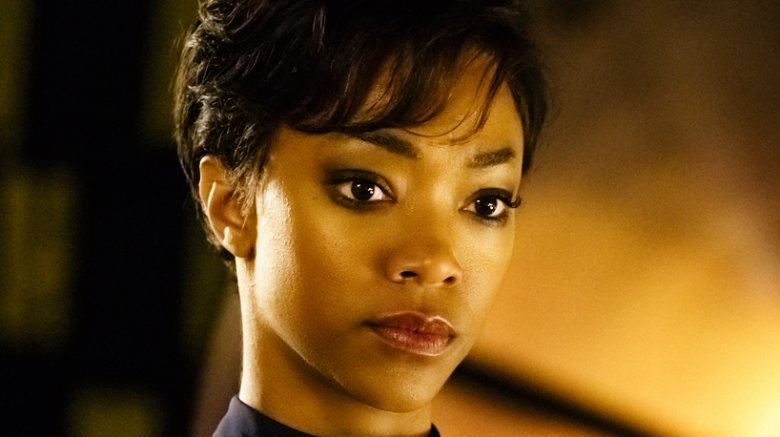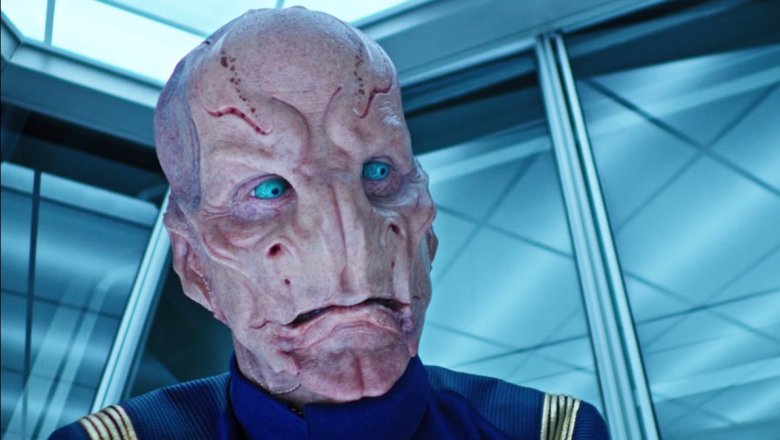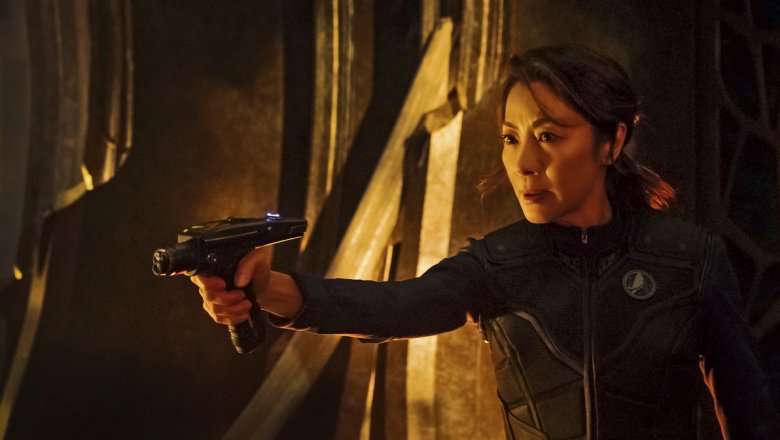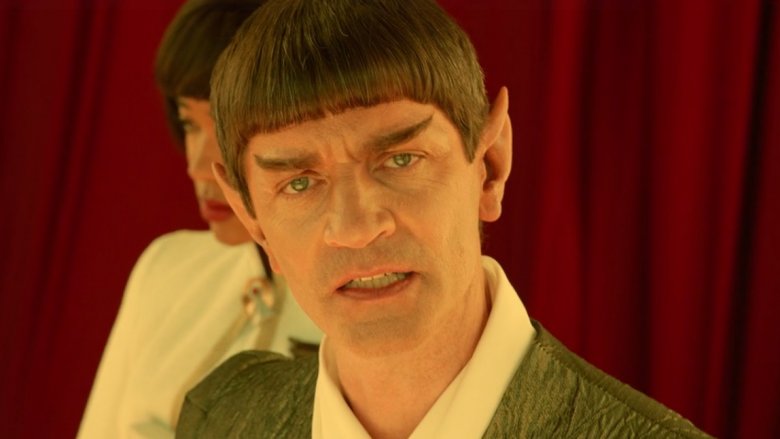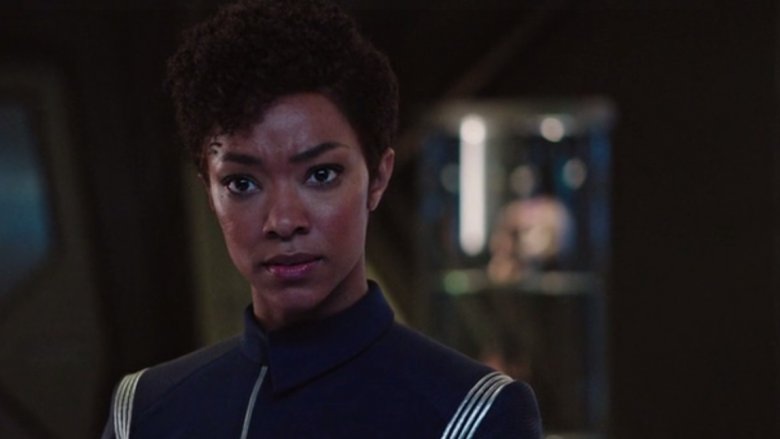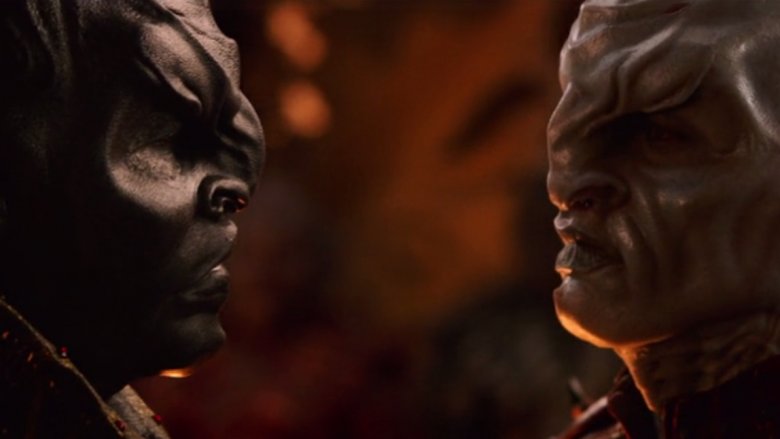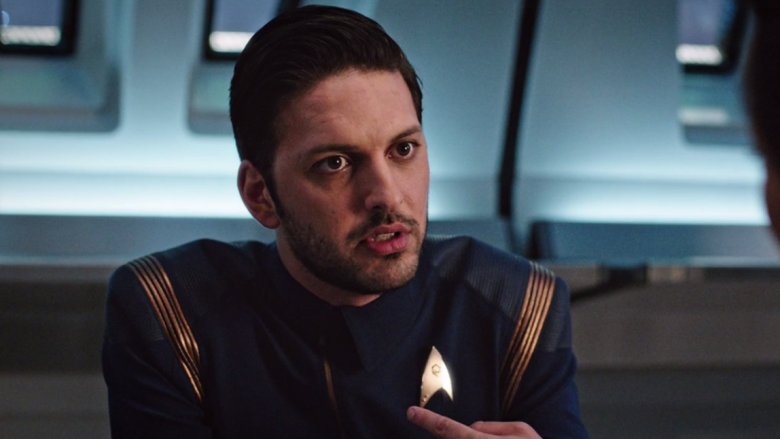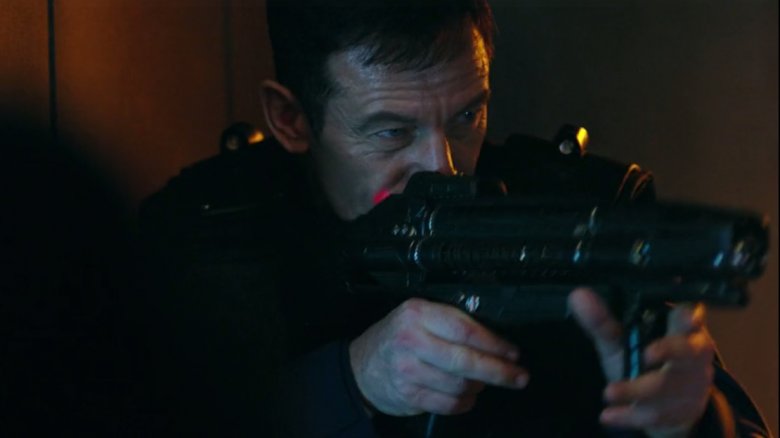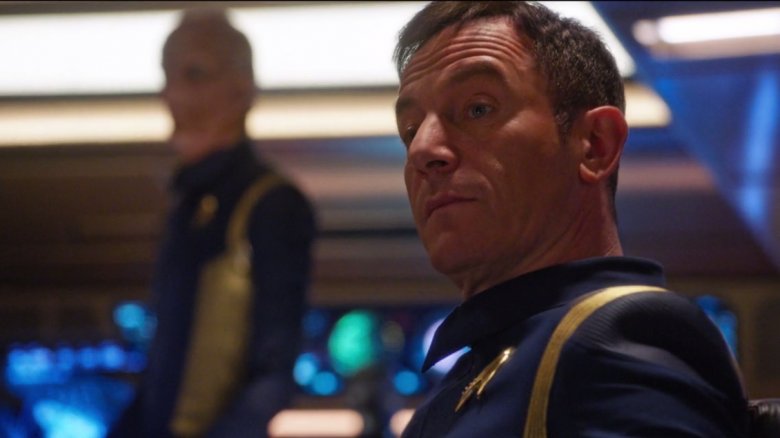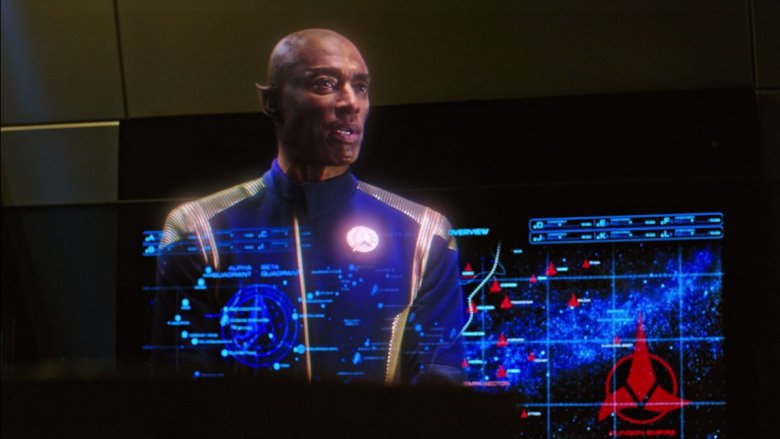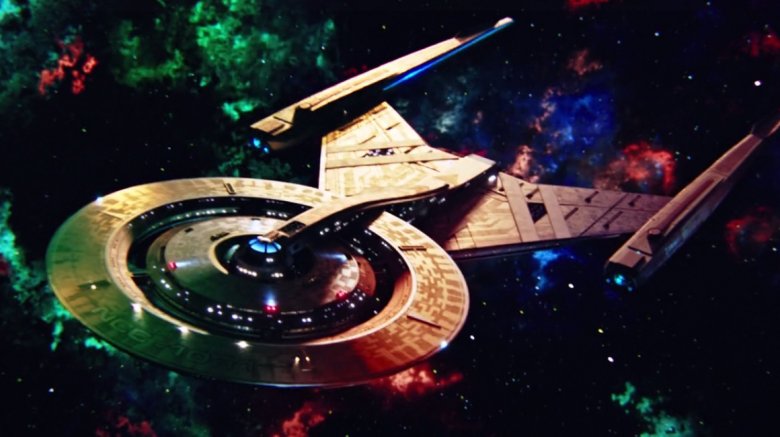Star Trek: Discovery's Most Glaring Offenses
Star Trek has never had a fan community known for real consensus. It's always been about the debates: "Kirk or Picard?" "JJTrek—good or bad?" Or "theme to Enterprise—redeemable?" And the sixth, most recent series in the storied franchise—Star Trek: Discovery, the first new show to be released in 12 years—is proving just as divisive as anything Trek-related ever produced.
Depending on who you're talking to, Discovery shows the franchise either in a resurgence or a death spiral. Viewers are battling it out across comment sections, forums and subreddits just as they used to fight in letters to fanzines or over IRC.
Nine episodes into Star Trek: Discovery's first season, it's still hard to judge it as a whole. It has its ups and downs, and almost every Trek series started out with a relatively lousy first season. As things stand now, some critics are wholly supportive, others are jumping off, and whether or not they're enough to sink the show, some consistent arguments have emerged on the side of the show's detractors.
Some of these issues may be dealt with as the show continues through its first season and beyond, but others could prove harder to work around. Read on to see what fans of Star Trek are calling new kid Discovery's most glaring offenses against the series canon.
Looking backwards
The original sin of Star Trek: Discovery, for detractors, is its status as a prequel to the events of the original series. Not only is it not the first show to do this—the last new Star Trek series, Enterprise, pulled the same trick, and that's no one's favorite show—the series also positions itself only ten years before the events of the original, even featuring some of the same characters.
Not only does this chronological overlap irk people thirsty for original content rather than visits from characters from the 1960s—hey everybody, it's Harry Mudd again!—it also opens the door to all manner of plot and character inconsistencies between shows.
In the original plan for Star Trek: Discovery, the show was to be an anthology series, with each season taking place in a different era of warp-capable humanity. The first season would have been a prequel, but future seasons would have jumped around.
The decision during development to axe this plan has elicited a lot of criticism. According to one writer, the motivation to go with the setting was largely due to a "gap in the chronology," which is hardly as satisfying a motivation as "we had a killer story in mind." People instantly criticized the superficial lack of continuity between costumes and tech, and feared the further implications of potentially sloppy prequel work. As a creative decision, it feels unnecessary, and invites a lot of arguments that the show probably can't win.
The divisive pilot
Right from the jump, Star Trek: Discovery's two-part premiere may be one of the most divisive installments of any Trek series to date. The two episodes, "The Vulcan Hello" and "Battle at the Binary Stars," were an action-packed adventure, an expensive production of CGI ship battles and gorgeous outer space effects. Some called it exciting, but for others, it was everything they'd hope the show wouldn't be—a blasty, shooty adventure instead of a showcase for the slower, more contemplative stories Star Trek has spent decades exploring.
Reactions were split more or less straight down the middle, and the divide in the fanbase still persists. One viewer's "interesting and engaging" is another viewer's "unrecognizable and awful," and there's enough material to make an argument for either side.
Even some of those who liked the episodes found them to be an odd way to introduce a new series, especially considering that—spoiler alert—almost everything the audience gets introduced to in the first episodes is turned on its head by the end, with the captain dead, the ship destroyed, and the lead demoted from first officer to lifelong prisoner. Even if the story was exciting, it's a weird way to start an ensemble cast Star Trek show. As one commentator put it, "we have watched the first two episodes of a TV show. I don't feel like I've seen a single episode yet."
Why so Spock-centric?
One of the biggest, most buzzworthy facts about Discovery in the lead-up to its release was that its main protagonist, the human woman Michael Burnham, was basically the adopted sister of classic series character Spock. Right away, fans started cracking the spines of their expanded universe books and canonical addenda, calling foul on the entire concept, much the same way they'd called foul on Spock's secret brother Sybok when he showed up in the much-maligned Star Trek V: The Final Frontier.
For some fans, the modification of a core original series family was playing too close to established canon to feel comfortable. While Spock himself doesn't appear, his father Sarek does, having an intensely close and at times combative relationship with Michael, his human ward. One episode, "Lethe," filled in some blanks about Sarek's relationship with Spock that don't mesh with how it's been portrayed in other series.
While not necessarily a bad thing, putting the show in a position where it invites these contradictions is a bizarre act of self-handicapping on the part of the creators, and constantly calls attention to the friction between old shows and the new. Obviously the writers can't travel through time to change what already exists in old scripts, so why did they invite the ire of one of the most detail-oriented, canon-obsessed fanbases in the history of television?
The distant lead
Another divisive point among viewers revolves around the main character Michael Burnham, portrayed by The Walking Dead's Sonequa Martin-Green. While some are fans of the driven, moody, and complex former first officer, others have found her character to be distant and even unlikable.
It's not a completely unjustified reaction. After all, she is responsible for kicking off the Klingon-Federation war that dominates the series in its early going—it's a pretty hard thing to charm your way back from that one.
Michael's cultural Vulcan-ness as an aloof logician also makes her as difficult a character to root for as she probably is to work with. It's not the fault of Martin-Green that some people aren't coming around—as a performer, she's doing a good job, and her character does have her moments. But she shoulders the burden of being disliked in-universe and distant from audiences, and since she's such a focus of the show, the rough edges of her character are that much harder to ignore.
Meet the... Klingons?
Another strike against Discovery revolves around the show's portrayal of the long-established Klingons. This is a species that's been around since the '60s, but when they first appeared as the central antagonists of Discovery, many viewers couldn't help but notice how the Klingons looked, and acted, completely different than they ever had before. Gone were the noble, Shakespearean qualities they exhibited in Star Trek VI: The Undiscovered Country or the strategic cunning of their flat-forehead TOS days. Instead of being compared to their previous incarnations, these iterations of the species have drawn comparisons to the violent and more feral Uruk-Hai of The Lord of the Rings.
Speaking of those foreheads, it's not the first time the Klingons have gone through a redesign, gaining their ridged-forehead look in 1979's Star Trek: The Motion Picture. Enterprise even went to great pains to reconcile the two looks in the series canon with a two-part episode that served just to explain the flat-vs-ridged forehead issue. Now there's a whole new wrinkle to the Klingon canon. Does it matter? Some fans would argue that it used to.
Casting shenanigans
Woe to any TV show that tries to keep a secret these days. The internet never met a puzzle box it couldn't solve, and it's increasingly looking like the most ruthless hive mind this side of the Borg may have figured out one of Star Trek: Discovery's biggest narrative twists weeks before the creators wanted them to.
So what's the big secret? It all revolves around Ash Tyler, played by Shazad Latif. Tyler was introduced to the show midway through its first chapter of episodes, making his first appearance as a POW on a Klingon ship who miraculously hadn't died despite allegedly suffering months of torture.
Commentators immediately began drawing a line between his conspicuous appearance and the sudden disappearance of a Klingon character named Voq—and alarm bells really started going off when it was discovered that Voq's performance was being credited by the show to an actor who appears not to exist.
Further, Latif's casting announcement originally stated he'd be playing a Klingon—is it possible he still is? Many viewers think so. Reviewers and recappers are openly discussing the theory as a foregone conclusion, expressing disappointment that the show may be building up to a predictable storyline that the franchise has trafficked in before. Klingons have been altering their appearance to infiltrate Starfleet since the original series, and the longer the show teases out this very likely plot turn, the weaker the reveal will probably be.
A grim tone
To heck with "frak" and "gorram"—in Star Trek: Discovery, we're going full-on F-bomb. Which isn't a bad thing so much as it's just weird. It's one indication among many of the show's overall darker tone when compared to series past.
Gone are the color-coded costumes, bright ship lighting, and relatively carefree personalities of older installments of Star Trek—everybody on this ship looks like they want to kill somebody. Sure, the storyline has them stuck in a time of war, but so did Deep Space Nine, and those guys still had time to take a load off with a game of baseball.
Star Trek has always been more optimistic and inspirational than Discovery's been so far, with dark deviations like the movies Nemesis and Into Darkness going down mostly poorly with the fanbase. There's a tongue-in-cheek corniness to typical Star Trek that this series doesn't have enough of.
As a result, many Trek fans are singing the gospels of The Orville, a show built around a tone of levity and sense of adventure that knows its primary colors, even if its jokes don't always land. Meanwhile, on Discovery, a crew member of the ship has evidently been the victim of cross-species sexual assault while held captive by the Klingons. It's a topic Trek has never really touched before, and indicative as anything else of the show's darker, TV-MA tone.
The captain is a madman
There's really no getting around this one—that Captain Lorca guy is kind of a psycho. Stern, distant, and militant, he's another aspect of the show that feels more in line with the desperate world of Battlestar Galactica than the "we're figuring this out together" world of Trek.
In the first nine episodes, the captain has drawn a phaser on an admiral, abandoned a man to die by Klingon hands, and tortured a sentient alien to power his ship. After that creature escaped, he was totally cool with switching the power source for his ship from an inarticulate alien to a straight-up human being—a volunteer crewman, but still.
Starfleet captains have always just felt more innately righteous than Lorca appears to be so far, even when they're outwardly cold. It's the admirals who are supposed to be evil, right? We even have an example in the show already of a good Starfleet captain in the deceased Philippa Georgiou, whom point-of-view character Michael ended up indirectly getting killed as a result of her vengeance-driven mutiny. Even just compared to her, Lorca is an aberration—and it's weird.
Past captains have been tough on their crews, but they made the hard decisions for their crews, whereas Lorca seems to be out mostly for himself. We'd almost rather be stuck aboard Janeway's lost, stranded hell-vessel than under this guy's command. Almost.
Advanced tech and the prequel problem
The complaints about Star Trek: Discovery's technological inconsistencies go beyond aesthetics and into actual examples in the story, like a functional holodeck, a fully holographic method of communication, and the immensely powerful spore drive that allows Discovery to leap anywhere in the universe across the span of a vast mycelial network.
Kirk and company could have used a few of these things, so if this show takes place ten years before the original series, then what happened to all that technology, right? You get the idea. In the show, it's not consequential, but taken all together, it all stacks up as part of the argument against making this a prequel to begin with. The franchise's past is limited, the argument goes. The future, on the other hand, would have been all opportunity.
The voyage home
On October 7, after three episodes of Star Trek: Discovery had aired on CBS All Access, executive producer Akiva Goldsman insisted that the show's creative team was aware of the apparent contradictions between its world and the established Trek timeline.
"We are wildly aware of everything that appears to be a deviation from canon," he said, according to TrekMovie, further promising to "close out each of those issues before we arrive at the 10-year period and hit TOS."
Some of those inconsistencies, though, already appear irreconcilable. As a result, some have been floating the theory that the entire show takes place in a war-torn mirror universe not unlike the one introduced in the Original Series episode "Mirror, Mirror," and there have indeed been hints of parallel dimensions taking place within the context of the show.
If Discovery really is revealed to be taking place within an entirely different universe, it would render most of these complaints moot. It would be a curious creative decision, and a daring one to keep hidden, considering how keeping that fact a secret risks driving viewers away.
Can Discovery overcome these issues? Of course it can—while these points do cause friction, there's a lot about the show to recommend, from its uniformly gorgeous visuals to its diverse and talented cast. With an entire second season guaranteed to come, there's plenty to look forward to—and to argue about. Disagreement doesn't doom the show—really, it wouldn't be Star Trek without it.
